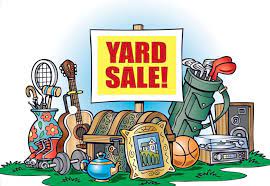Hosting a yard sale or garage sale can be a great way to declutter your home, make some extra cash, and connect with your community. However, before you start pricing your items and setting up tables, it’s crucial to understand the legal framework surrounding these sales. Yard sale laws vary significantly from place to place, so knowing the regulations in your specific area is essential to avoid any unwanted complications.
This article will delve into the intricacies of yard sale and garage sale laws, covering key aspects like permits, signage requirements, operating hours, and more. By following the guidelines outlined here, you can ensure a smooth and successful selling experience while staying compliant with local ordinances.
Yard Sale Laws
Yard sales, also known as garage sales or tag sales, are generally considered legal in most jurisdictions across the United States. However, specific regulations governing these sales can differ widely depending on your city, county, or state. Some areas may have stricter rules than others, so it’s always best to check with your local government before hosting a sale.
Generally, yard sale laws aim to ensure public safety and order while minimizing any negative impacts on neighborhoods. This often involves regulations regarding the frequency of sales, permissible items for sale, and noise levels during the event. It’s important to note that some jurisdictions may prohibit certain types of items from being sold at yard sales, such as firearms, explosives, or counterfeit goods.
Garage Sale Regulations
Garage sale regulations typically build upon the broader framework of yard sale laws, often incorporating additional specific guidelines. These regulations can address various aspects of the sale, including:
Location Restrictions
Some municipalities may impose restrictions on where garage sales can be held. For example, certain areas might prohibit sales within a designated distance from residential properties or commercial establishments.
Duration Limits
Regulations may also specify the maximum duration allowed for a garage sale. This could range from a single day to a weekend-long event. It’s important to adhere to these time limits to avoid any legal issues.
Permits & Licensing
While many jurisdictions allow yard sales and garage sales without requiring permits, some areas may mandate specific licenses or authorizations. These permits often serve as a way for local governments to track and regulate these events, ensuring compliance with regulations.
The process for obtaining a permit typically involves submitting an application form along with any required fees. It’s essential to check with your local government office to determine if a permit is necessary for your specific location and the type of sale you plan to host.
Signage Requirements
Signage plays a crucial role in attracting customers to your yard sale or garage sale. However, regulations regarding signage can vary significantly from place to place. Some areas may have restrictions on the size, placement, or content of signs used to advertise these events.
Sign Placement
Regulations often specify permissible locations for placing signs, such as designated public spaces or along roadways with specific guidelines. It’s important to avoid placing signs on private property without permission or in areas that obstruct traffic or pedestrian walkways.
Sign Content
Some jurisdictions may also have rules regarding the content of yard sale signs. This could include limitations on the use of certain words, phrases, or images. Always ensure your signage complies with local regulations to avoid any fines or penalties.
Hours of Operation
Regulations often dictate the permissible hours for conducting yard sales and garage sales. These timeframes are typically designed to minimize noise disturbances and traffic congestion during non-peak hours.
Quiet Hours
Many areas have designated “quiet hours” during which certain activities, including hosting yard sales, may be restricted. It’s crucial to be aware of these quiet hours and adjust your sale schedule accordingly.
Conclusion
Navigating the legal landscape surrounding yard sales and garage sales can seem daunting, but by understanding the key regulations in your area, you can ensure a smooth and successful selling experience. Remember to research local ordinances regarding permits, signage requirements, operating hours, and permissible items for sale. By adhering to these guidelines, you can enjoy the benefits of decluttering your home, making some extra cash, and connecting with your community while staying on the right side of the law.



